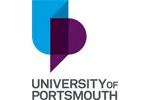We're moving! This site will be relocating to goingto.university in 2026. Please update your bookmarks to the new address.


the United Kingdom
University of Portsmouth| The award | How you will study | Study duration | Course start | Domestic course fees | International course fees |
|---|---|---|---|---|---|
| BSc (Hons) | Full-time, Sandwich | 3 - 4 years | September | - | - |
Overview
Environmental scientists deal with the big questions facing humanity.
If you want to tackle climate change and preserve Earth's natural resources, this BSc (Hons) Environmental Science degree, accredited by the Institution of Environmental Sciences (IES), will prepare you for the challenges ahead.
If you want to tackle climate change and preserve Earth's natural resources, this BSc (Hons) Environmental Science degree, accredited by the Institution of Environmental Sciences (IES), will prepare you for the challenges ahead. You'll gain an understanding of the human threats to the natural world and develop the skills to reduce impacts and find solutions needed for a sustainable future.
Course highlights
Careers and opportunities
Environmental science is at the forefront of our efforts to preserve and protect the natural world. As our understanding of environmental cause and effect continues to develop, environmental scientists are in high demand, including within the many sectors and industries tasked with reducing their environmental footprint.
In the UK, the number of environmental jobs has increased by 91% compared to 2016, and those entering the environmental field can expect to earn at least 12% above the national average annual wage.
Tackling the environmental challenges our world faces
On this BSc Environmental Science, you’ll explore how the environment is changing and discover new ways to minimise our impact on the planet. You'll examine the physical and social aspects of environmental issues and develop practical skills to carry out your own environmental research, including analysing pollutants, soil structure and water quality.
Once you graduate, you'll be ready to go after jobs in academia, business or government in a wide range of environmental specialties, including conservation, pollution control, waste management, sustainability, climate change and energy resources.
You'll be able to apply for Associate Membership of the Institution of Environmental Sciences (IES) and with more experience, you could work to become a Chartered Scientist (CSci) or Chartered Environmentalist (CEnv). Chartered Membership of the IES is required in many environmental careers.
You could also continue your studies at postgraduate level, such as on our MSc Geological and Environmental Hazards or MSc Environmental Geology and Land Contamination.
What jobs can you do with an environmental science degree?
Roles our graduates have taken on include:
Graduate destinations
Organisations our graduates have gone on to work for include:
Placement year
After your second or third year, you can do an optional work placement year to get valuable longer-term work experience in the industry. Placements give you the opportunity to apply what you've learnt so far in a real workplace, boosting your employability and making you attractive to employers after graduation.
You can work for a company or organisation here in the UK or overseas, or you could go independent by setting up and running your own business with other students.
Students have completed work placements at top organisations, including:
Whichever route you choose, you'll receive support and guidance. Our specialist team of Science and Health Careers advisors can help you with finding a work placement and improving your employability skills. They'll provide you with a database of placement vacancies, support with your job search – including help with applications and interviews – and support throughout your placement year.
Study abroad
You’ll also have the chance to study abroad at one of our partner universities, including Universitat Autonoma de Barcelona (Barcelona, Spain), Universite du Havre, (Le Havre, France) and Adam Mickiewicz University (Poznan, Poland). Studying overseas is a fantastic opportunity to explore a new destination and experience the world as an international student.
Many of our students describe their time spent studying abroad as truly life-changing, as well as an excellent way to stand out to future employers.
https://www.port.ac.uk/study/undergraduate/undergraduate-fees-and-student-finance
112-120 points to include a minimum of 2 A levels, or equivalent, to include a science subject (biology, chemistry, environmental science/studies, geography, geology, mathematics or physics).
English language proficiency at a minimum of IELTS band 6.0 with no component score below 5.5.
Below are some suggested courses at other providers that you may also be interested in:
Preparatory Courses in English for Degree Studies (Medical, Business, Architecture and Engineering, Psychology, English and American Studies) UG:Foundation, UG:Foundation, UG:Foundation
University of Pécs
Find out moreConsider a Foundation or Pathway course at University of Portsmouth to prepare for your chosen course:
If you do not meet the entry requirements for this course then consider one of these courses from another institution:
There are 529 other courses listed from University of Portsmouth. A selection of these are displayed below:
Join the StudyLink email list and never miss a chance to turn your study abroad dreams into reality!

Find out more about studying in the United Kingdom